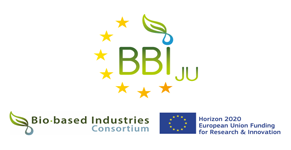The Bio-based Industries Joint Undertaking (BBI JU) is a €3.7 billion Public-Private Partnership between the European Union and the Biobased Industries Consortium. Until today, BBI JU has funded 123 bio-based innovation projects involving 924 beneficiaries from 37 EU Member States and Associated Countries.
EXcornsEED is among those and being part of this amazing network is giving to the whole consortium the chance to create a strong sinergy with a large number of international research and cooperation projects funded under several European funding programme.
To get to know better the BIC Consortium, Innovation Engineering had a nice talk with Ben Kennard, representative from the Communications and Stakeholder Relations department, which explained the aims and purposes of BIC, as well as the contribution that EXCornsEED will bring to the creation of a circular bio-society in Europe.
Ben, please describe a short bio of your professional background
I am responsible for communications and stakeholder relations in the BIC team since December 2018. Prior to joining BIC, I worked in various communications roles with my most recent position being at CEPI – the Confederation of European Paper Industries – the European association representing the forest fibre and paper industry. While working for CEPI I first became interested in bio-based materials and the bioeconomy and became convinced of the sector’s potential for realising Europe’s challenges – this led me on the journey towards joining BIC. Aside from communications responsibilities, I am also managing a new BIC project – the BIC bioeconomy platform to connect the bio-based industries and European regions. This new platform seeks to stimulate bio-based investment and create new local value chains.
Could you give us a hint what your organization is about?
BIC is one of Europe’s leading associations representing the bio-based sector. BIC is known for representing the private sector in the 3.7 billion EUR public-private partnership with the European Commission – the Bio-based Industries Joint Undertaking (BBI JU). BIC is also one of Europe’s most diverse industry-led associations and represents multiple sectors such as agriculture & agri-food, aquaculture & marine, chemicals and materials, including bioplastics, forestry and pulp & paper, market sectors, technology providers and waste management & treatment. Through it various activities and services, such as its business-to-business networking events, industry-led partnering platforms and bio-based intelligence services , BIC seeks to overcome traditional industry boundaries with the aim of fostering new synergies and establishing new, circular bio-based value chains in Europe. At the heart of this drive is the Vision 2050 for a circular biosociety and the Strategic Innovation and Research Agenda (SIRA), which is the action plan for realising this Vision. The next SIRA – SIRA 2030 – is currently being finalised and will be even more comprehensive and ambitious than the current SIRA.
Could you please explain how BIC operates?
BIC is a membership-led organisation with a secretariat based in Brussels. The General Assembly is the main decision-making body of BIC and all industry members have a vote. The General Assembly also elects the Board of Directors who implement the general policy and the work program adopted by the General Assembly. The Board is assisted by the Programming and Public Affairs Working Groups. The Executive Director heads the BIC secretariat and is responsible for the day-to-day management of the BIC team. BIC’s industry members participate in the Programming Working Group and provide input for the topics for the BBI JU’s Annual Work Programme. Five members from the BIC Board also represent the industry in the BBI JU Governing Board, which is the main decision-making body of the BBI JU. Nonetheless, governance of the BBI JU is just one of the six pillars where BIC is active and ever-evolving, other activities involving members include: B2B networking events, facilitating access to finance for bio-based investment, providing bio-based intelligence services, mainstreaming bio-based education in curricula as well as public affairs and communications activities to raise the visibility of the bio-based industries.
How BBI JU funded projects such as EXCornsEED support the creation of a circular bio-society in Europe?
EXCornsEED is an excellent example of a BBI JU-funded project that contributes to the realisation of a circular bio-society in Europe. The project supports several the Vision’s key drivers such as fostering food security, meeting demand for sustainable products, generating new value-adding products with minimal environmental impact, etc. Notably, the project contributes to achieving a zero-waste biosociety through valorising side streams and converting their compounds into valuable bio-based materials and products. At the same time, the project also contributes to food security by recovering protein and other bio-active compounds for the preparation of food. It also reduces reliance on fossil-based chemicals by producing bio-based chemicals, which can be used for the purposes of cosmetics, amongst other purposes. The project also has a strong representation of SMEs, who are vital for stimulating the innovation and knowledge transfer needed to establish a circular bioeconomic society.


